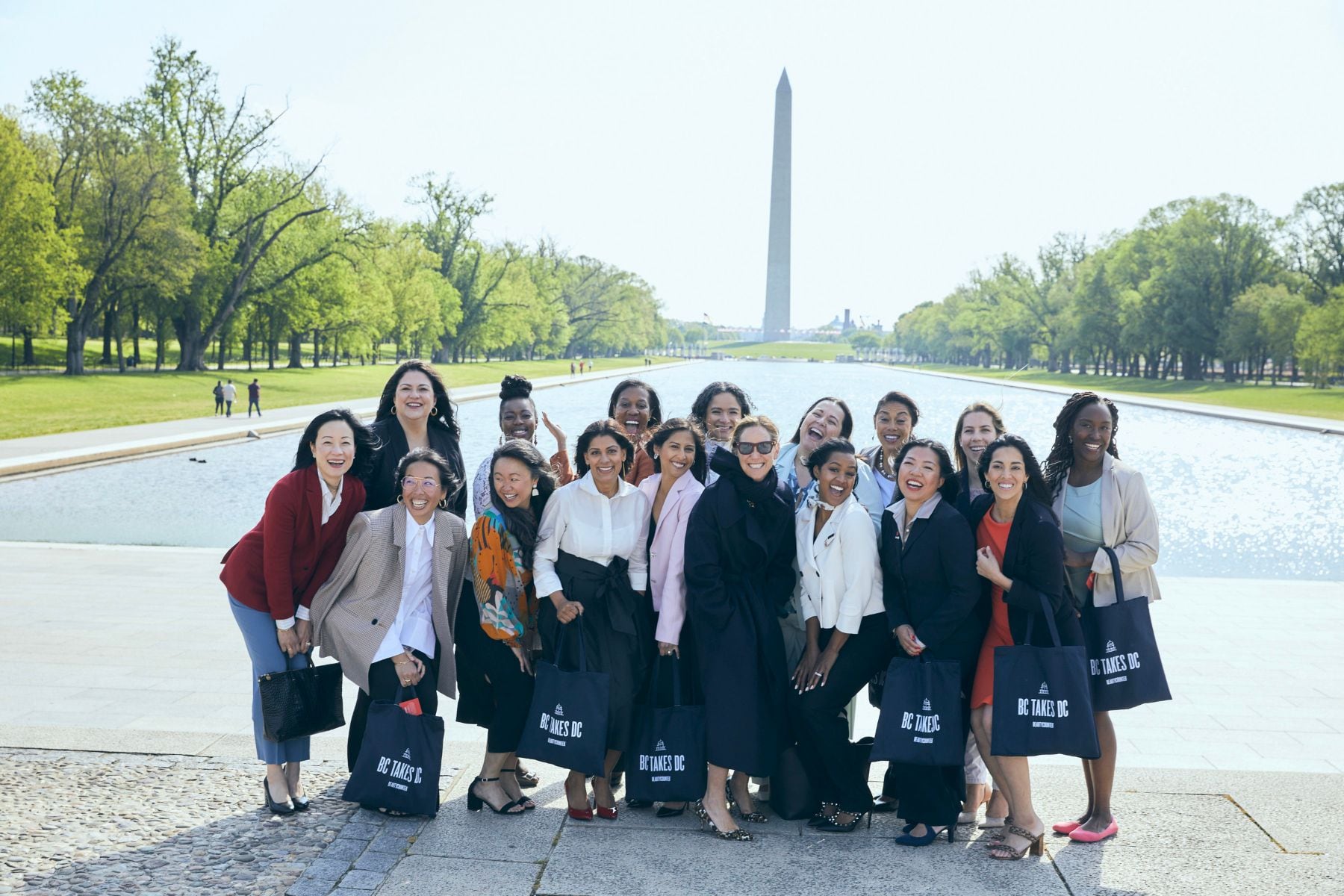
A recent Facebook post from a longtime Beautycounter seller reads a little like a celebrity’s breakup announcement.
“I have some hard news to share with you all,” she begins, going on to say that she had learned the company was on hiatus and had temporarily stopped selling its “clean” serums and creams. The post was accompanied by an image of her sitting in a hammock, which she described as a “happier time” with the brand.
For many of Beautycounter’s independent salespeople, the sudden shutdown of the brand earlier this month felt like the painful end to a relationship that had grown, to use a word they’re intimately familiar with, toxic.
Beautycounter was built around a multi-level marketing model, where sellers, which it calls consultants, earn commissions for sales they make, as well as a cut from revenue generated by anyone they recruit. These consultants numbered around 60,000 in 2021, when the Carlyle Group, a private equity firm, acquired the brand at a $1 billion valuation. Independent sellers continued to drive an overwhelming majority of revenue even as Beautycounter opened its own stores and landed space at big beauty retailers.
But even before last month’s closure, Beautycounter’s seller network had seen better days. The ranks of consultants had dwindled by around a third since the acquisition, said a person familiar with the matter. Some drifted off after Gregg Renfrew, who founded the brand in 2011 and galvanised thousands of consultants on lobbying campaigns to regulate beauty ingredients, stepped down as chief executive at the end of 2021.
Many others became frustrated as they struggled to hit sales targets set by the company, which they needed to clear to receive insider discounts and cash payments. These days, beauty aisles are stocked with dozens of brands that, like Beautycounter, claim to be “free from” certain chemicals and potentially harmful ingredients. There was another reason friends and coworkers were less receptive to pitches on Facebook: as is the fate of many MLMs, a significant share of potential customers had become sellers themselves.
Consultants were also facing perhaps their stiffest competition from an unexpected source: Beautycounter itself. The brand had its own e-commerce site, and had experimented with pop-ups in Sephora and Target, plus stores in New York, Denver and Nantucket, Massachusetts. But a nationwide wholesale partnership with Ulta Beauty, launched in February 2023, was a turning point, sellers say.
“It took everything away from the consultants,” said Christina Allen, a former salesperson in San Antonio, Texas. “It was going to be [in Ulta Beauty] permanently, they made that clear, and there was no reason to then use a consultant anymore.”
Renfrew’s return in February was a cause for celebration among her fans. On April 18, the company announced she was buying the brand back, and that it would briefly halt direct sales ahead of a May 1 relaunch.
That date came and went. On May 6, Renfrew sent an email to Beautycounter consultants notifying them that the comeback would be postponed until late 2024, blaming the delay on issues restoring operations, saying that her original timeline was “too aggressive.” Consultants would not be able to sell any products in the meantime, effectively terminating their Beautycounter careers. Renfrew also warned that the company might look different when it reopened.
Renfrew is beloved amongst clean beauty devotees – on social media, consultants still wax lyrical about their undying belief in her mission – and she’s proven her grit before. To carry the company through to its next chapter, however, new strategies that both support its loyal consultant base and also open the aperture to wider global growth are needed.
The longer Beautycounter takes to reopen, the harder that balancing act becomes. When multi-level marketing companies stop growing, their intricate webs of independent salespeople can quickly collapse as it becomes harder for consultants to recoup start-up costs or recruit new members (Beautycounter consultants paid a $50 enrolment fee, and were encouraged to purchase “starter sets” costing as much as $735). The bond MLMs build with their sellers can also become a liability. The company’s recovery will play out in public, with thousands of emotionally invested consultants scrutinising every move.
“Beautycounter isn’t just a brand to me,” one seller wrote on Instagram about the closure. “It’s been a catalyst for personal growth and advocacy.”
Another wrote: “I am sad, heartbroken, still trying to process it all.”
Clean Beginnings
Launched in 2013, Beautycounter played a major role in popularising the idea that people would buy products based on what ingredients they didn’t contain.
The brand’s “never” list eschewed more than 2,800 ingredients, from oxybenzone to phthalates. Renfrew appeared on Bloomberg and CNBC to advocate for clean beauty. She also testified before Congress about cosmetic reform.
“[Beautycounter] was a big innovator,” said Bill Detwiler, managing partner in Fernbrook, which invested in Beautycounter in 2014 and again in 2016. “It was really the first clean beauty business that spoke about non-toxic ingredients.”
The products themselves were also appealing, winning awards from Allure and Cosmopolitan. Allen said she joined the sales programme after trying a friend’s cleansing balm and being impressed.
“Then, I found out the major pitch point that you get your own discount if you choose to become a consultant, and that interested me,” she said.
Beautycounter operated in many ways like other multi-level marketing companies, such as Amway and Mary Kay, where recruiting downlines was often the fastest route to making big money.
Consultants didn’t have to buy inventory, a controversial practice used by some MLMs that can saddle sellers with losses if they fail to move enough product.
Instead, consultants logged sales into an internal database, and Beautycounter would handle inventory and shipping. Consultants had to hit a minimum of $1,200 in sales every six months to remain enrolled (a figure reduced to $750 in 2022).
“I didn’t expect lots out of it. I wanted the discount and I thought maybe I could get a few people to purchase under me,” said Allen, who recalls having one person in her downline, and making about $30 to $80 in commissions most months.
Even that took effort, though.
“You couldn’t just post [on social media] about something you liked here and there. You had to make a consistent effort to post daily,” she said.
There were other perks for the most active sellers: when Renfrew testified before Congress, sellers accompanied her to meet with politicians.
The MLM structure, along with the lobbying campaigns, doubled as unpaid marketing, and cemented sellers’ loyalty, ensuring Beautycounter stayed at the forefront of the booming clean beauty category even amid competition from brands such as Goop, Tata Harper and Drunk Elephant. Sales surpassed $300 million in 2018.
There were growing pains. MLMs must constantly battle attrition, as people realise how much work is required to earn commissions, and dreams of building a self-sustaining business melt away. Expanding too quickly can also be a problem. Consultants run out of new customers if everyone interested in the brand is also selling it.
That was an issue Allen said she ran into in rural Texas. She was unenrolled as a consultant in early 2021 after failing to meet the minimum sales threshold. She rejoined later that year, but dropped out again in 2022.
Peak Clean
Beautycounter navigated those issues adeptly for most of its first decade. The pandemic was a major boon. People spent their days on social media, where, unable to visit physical stores, they were now more open to sales pitches from Beautycounter consultants. Millions of people lost or quit their jobs, and many tried their hand at multi-level marketing.
It was at that moment, in 2021, that the Carlyle Group acquired a majority stake. At the time, the private equity giant seemed to have a magic touch with consumer brands, having successfully flipped the streetwear label Supreme and sneaker brand Golden Goose.
The decline at Beautycounter set in almost immediately after the acquisition, the source familiar with the company’s inner workings during that period told The Business of Beauty. Like many brands that benefitted from pandemic trends, Beautycounter’s sales suffered as the world opened up again. Rising wages and plentiful job openings made Beautycounter’s proposition to consultants less appealing.
Along with Renfrew, several longtime senior executives, including the chief financial officer and head of mission, exited in early 2022. In April 2022, Beautycounter revamped consultants’ compensation structure, limiting commissions from downlines by removing commissions from personal orders, changes aimed at incentivising recruitment of new customers. The tweaks were expected to cut earnings for top sellers by 20 to 29 percent, but some consultants who had hundreds of people in their downlines saw their returns slashed by 60 percent, sellers alleged in a lawsuit filed in US federal court in January 2024. Plaintiffs, one of whom was reported to have earned over $1 million between 2014 and 2023, said they were terminated from Beautycounter after attempting to recoup lost earnings by joining a second MLM.
By 2022, the brand had swung from an annual profit to operating at a loss, according the same individual. Marc Rey, who succeeded Renfrew as CEO, departed in June 2023.
‘Win November’
After the acquisition, Allen remembers heavy promotional activity and a faster launch cadence aimed at reengaging consultants and their customers. But the brand was also beginning to move away from relying as heavily on its direct sellers.
The source close to the business told The Business of Beauty there was an internal campaign in late 2021 to try and “win November” and drive more sales via e-commerce and use it as a lever to grow brand awareness. The initiative fell short of targets.
In February 2023, Beautycounter entered Ulta Beauty. Ulta declined to comment, but sources close to Beautycounter said it has performed well there. Even now while the brand’s direct sales are dormant, it’s still available in Ulta stores and the retailer’s website.
The changes kept coming. According to a former Beautycounter employee, Carlyle implemented two restructuring plans in 2023, representing a significant loss of personnel. In addition to Rey’s exit, the head of the supply chain and the chief impact officer were let go, among other roles, said the former employee.
In a statement to The Business of Beauty, a Carlyle spokesperson said Beautycounter experienced “significant market and channel headwinds” and that its efforts to support the brand including increased spend on marketing and product development did not stop the business from losing ground.
Morale suffered, said the former employee, but even then there were plans for further expansion into new markets and categories like fragrance, which launched in March 2024.
In October 2023, following the departure of Jay Sammons, who had led the Carlyle Group’s consumer, media and retail division in the US, the private equity firm decided to “deemphasise” that part of its portfolio as a “go forward investment sector,” according to an internal memo seen by Reuters. Sammons had been a key confidante and advocate for Renfrew, having been the one to lead the acquisition. Sammons declined to comment.
The Path Ahead
In her May 6 email to consultants, Renfrew said independent contractors would continue to be a part of the new Beautycounter. But she also said all aspects of the community and sales structure, including earnings and job titles, are being reassessed. According to an individual familiar with the matter, Renfrew has been helping consultants find work with Arbonne, a rival MLM, to support their incomes while Beautycounter is out of action.
There are no easy choices. If Beautycounter doubles down on wholesale and its own website and stores, it seals its fate as just another beauty brand jostling for consumers’ attention. If it sticks with the direct selling model, it still has to address the problem of churn and the constant hunt for new customers and consultants.
The company might look to newer, less-saturated markets, too. Advocates could be switched from quasi-employees to quasi-influencers, and generate a commission by giving their followers a special code, rather than ordering stock on their behalf.
Allen said she’s still a fan of the brand, though purely as a customer. A cleanser remains a favourite. But she said winning back consultants will be difficult.
“A number of people that I know who used to be very high up in Beautycounter have gone to another MLM company and the things they post are the same as what they posted about Beautycounter… ‘this is great! I’ve never had a product work like this!’” Allen said.
Sign up to The Business of Beauty newsletter, your complimentary, must-read source for the day’s most important beauty and wellness news and analysis.



